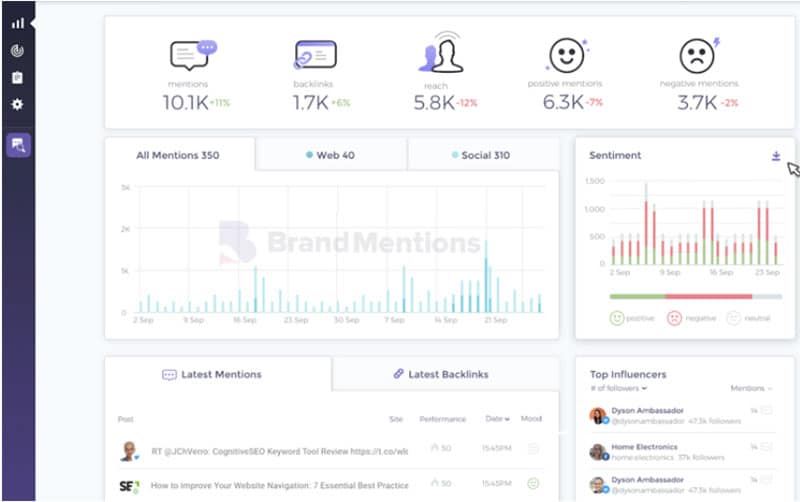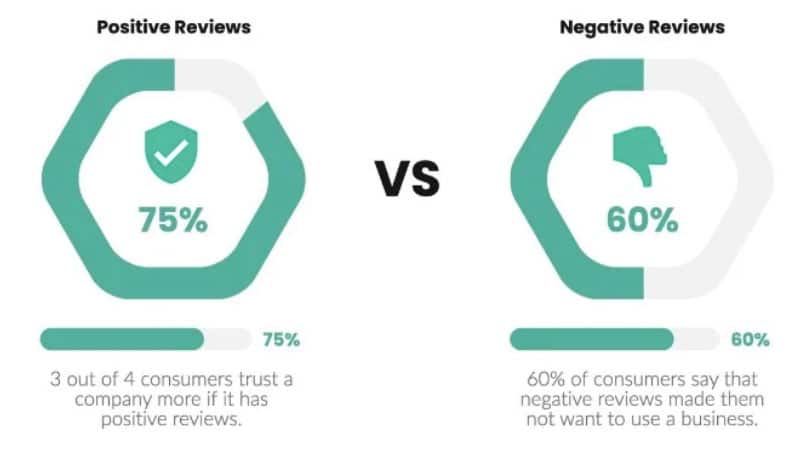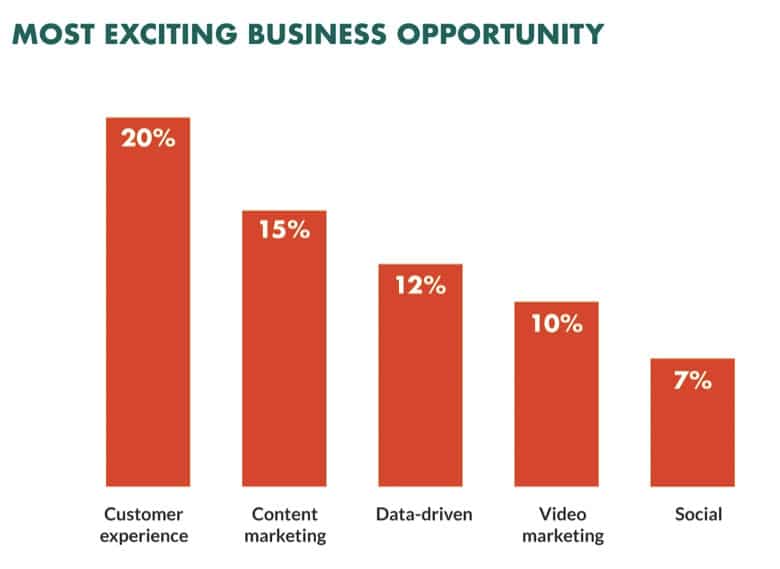Why Your Business Needs Brand Monitoring More Than Ever

Brand Monitoring might become digital marketing cornucopia. It doesn’t have less importance than other types of online marketing, and it surely has an important role in your business strategy. In the last few years, it has begun to receive more strength. To put it simply: it might make you or break you. The clout is in your hands; you just need to decide if you’re using it or not.
You can’t leave brand monitoring aside just like you can’t leave your audience aside and fail to listen to their needs. Because listening to what they say about your business, besides your competitors, will give you some great insights to run your business better and offer what they want. Happy clients mean happy business, more sales and conversions.
To get there, you need to understand why and how can brand monitoring help your business:
- Track Social Media Presence
- Measure Brand Awareness
- Improve Brand Reputation
- Lead Generation
- Perform Competitor Analysis
- Product Development
1. Track Social Media Presence
The first step in the social media monitoring process is creating a list of terms you want to follow. It might be a brand name, a marketing campaign name, a competitor name, a product name and so on. Create a concise list and start tracking your social media presence.
Without brand monitoring tools, things can get a little trickier and it might be difficult to keep track of relevant mentions. Not to mention that it can be almost impossible to find all your mentions without a tool.
Studies show that only 9% of tweets mentioning companies start with @. Which means that 91% of people are talking about you, not to you. Imagine one of your competitors or an angry fan who decides to mock your business online and damage your reputation. So your sales start to take a fall and you don’t know what happened. Social listening comes to the rescue. It gives you directions, taking you straight to the point.
Take BrandMentions.com for example. This social listening tool starts monitoring your brand, digging every corner of the internet to find out where and what people say about it. It’s easy and smart. Plus, it also indicates whether they associate your brand with a positive or negative experience.

BrandMentions is like a safety kit, packed with everything you need to survive on the internet.
2. Measure Brand Awareness
Another important aspect of brand monitoring is brand awareness. You need to perform brand awareness to let people know about you, but after you need to measure it. And that doesn’t come easy.
Brand awareness shows how well a user knows and remembers your brand and products and asks for them online and offline. You can start measuring brand awareness and track its effectiveness by following the next steps:
- Monitor direct traffic referral traffic through Google Analytics to see how many people know your business well (your true fans).
- Use monitoring platforms to track the volume of brand mentions. As mentioned above, you might have a bigger audience than you know, so collect more data.
- Evaluate the sentiment analysis for your mentions.
- Quantify the total number of followers on social media.
- Check social engagement to determine which content is driving people to our website, and what type of content is more effective
- Determine social media reach.
3. Improve Brand Reputation
Your brand reputation is what people say about you and your business. And I know you’d like to find out their opinions. Tools that track mentions can do exactly that. It will display you what everyone is talking about you everywhere online. More advanced options will show you the overall sentiment tone of your mentions to get all the information you need for your product development team to make clients happy.
Based on the information you get, you can perform further actions: either continue to make your clients happy if they are delivering positive feedback or recover your online reputation if that’s the case and create marketing solutions to users’ problems.

4. Lead Generation
Social media is a place where you can find pretty much everything you’d like. For example, by searching social conversations, especially on social media channels, we can find people in need of your products, or want to switch to other brands and fulfill similar needs.
A simple search on Twitter or any other social media platform can be translated into lots of ideas. Check out the print screen below:
Start social networking. A reply to this kind of posts can increase brand awareness and sales by bringing a client that enjoys your social interaction and your account.
Share the love, then start performing media monitoring. That’s how you use brand monitoring to collect leads and hook them in your social funnel.
Another way to generate leads is to participate in Twitter chats, where you can promote your expertise and build your authority on a topic. Look for different hashtags to find relevant hashtags for your brand. Then join the conversation and include that specific hashtag.
Even if your purpose is to sell and gain a bigger audience, you shouldn’t start hard selling in a Twitter chat. Put the conversation first, not yourself, and interact with others.
5. Perform Competitor Analysis
Tracking your competitors online, or a specific product you both own, can uncover some interesting insights. For example, you can find out what they like or dislike about your competitors and come up with a strategy to be better than them. Learn from your competitors’ mistakes.
For example, employer branding is something Dunkin’ Donut still has to work on and Starbucks could use that information with a guide on customer care to avoid critical situations.
6. Product Development
All the information you collect on your brand helps you make better product development decisions. Plus, monitoring industry & branded keywords, brand mentions and competitors’ mentions as talked about above, will help you discover pain points that you can solve.
Negative as well as positive comments will teach you that you need to take action. All the feedback that you get online from your customers is not just a message of rage that unbalances your brand karma, but rather a way to get better. From each feedback, you can learn something. Treat their messages as the most honest source of feedback. Or spot the problems your competitors have and you can be the first one to solve them.
You get information for free, the information you can use to deliver what your audience wants. Imagine if you implement those tips, they will gain your trust and would feel the need to use your product since you’ve made an effort.
Even if the customer is right or not, you should still listen and more importantly find out when somebody talks about your business. Make a greater impact online when you have all the facts or track mentions and come up with improvements to boost sales, in the end. Create a customer-centric product to gain the trust of your existing and potential clients.
Brand monitoring is no less important than any other type of digital marketing.The reasons to perform brand monitoring are very different and, if at least one of the aspects mentioned above is vital to your business, then you should include brand monitoring in your daily routine.
Have you read?
World’s Most Economically Influential Cities.
World’s Best Cities For Luxury Shopping.
World’s Best Cities For Millennials.
Bring the best of the CEOWORLD magazine's global journalism to audiences in the United States and around the world. - Add CEOWORLD magazine to your Google News feed.
Follow CEOWORLD magazine headlines on: Google News, LinkedIn, Twitter, and Facebook.
Copyright 2025 The CEOWORLD magazine. All rights reserved. This material (and any extract from it) must not be copied, redistributed or placed on any website, without CEOWORLD magazine' prior written consent. For media queries, please contact: info@ceoworld.biz











